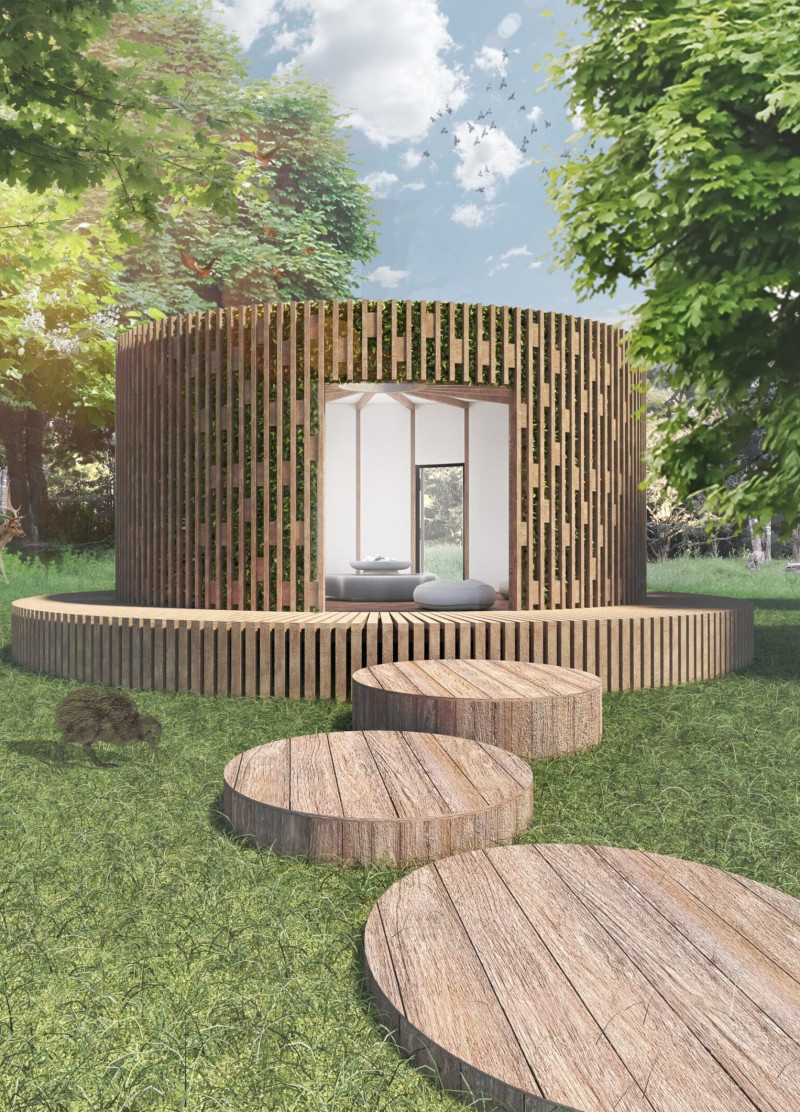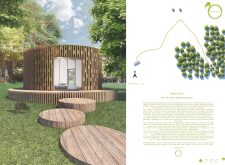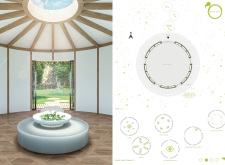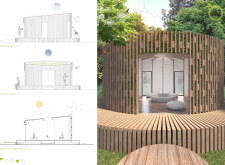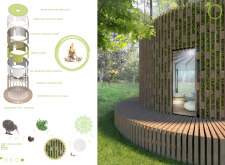5 key facts about this project
The Tiny Kiwi Meditation Cabin is designed to fit harmoniously into its natural setting, promoting a sense of community and mindfulness. Its circular shape reflects the focus on shared meditation, yoga, and healing. By integrating the structure with the landscape, the cabin aims to enhance the connection between users and their surroundings, utilizing natural light and organic materials.
Layout and Spatial Organization
The circular layout serves as the foundation for the cabin's design. This form allows users to gather together, fostering community and shared experiences during meditation and other activities. Each area is flexible, accommodating different healing practices such as flower essence processing or yoga. This thoughtful arrangement ensures that the space is versatile and welcoming for groups.
Natural Light and Connection to Nature
Natural light is a central feature of the cabin. The altar is placed directly under a skylight that brings daylight into the interior, creating a warm and inviting atmosphere. The surrounding windows and doors offer views of the landscape, allowing nature to become a part of the indoor experience. This connection to the outdoors encourages mindfulness and reflection for those inside.
Materiality and Aesthetic Details
Wood is the primary material used throughout the cabin, valued for its natural beauty and lasting quality. The double wooden facade incorporates vertical patterns alongside irregular horizontal elements, symbolizing the flow of energy within the space. Hanging gardens inspired by the appearance of Kiwi bird fur enhance the visual appeal and promote local biodiversity, further tying the structure to its environment.
Functional Elements
The base of the cabin provides additional benefits, offering storage room and a comfortable sitting area. This design feature encourages visitors to interact with the surrounding landscape. Each aspect of the cabin’s design is intentional, contributing to an atmosphere that invites quiet reflection and personal growth. The overall execution results in a peaceful retreat aimed at fostering relaxation and connection to nature.


